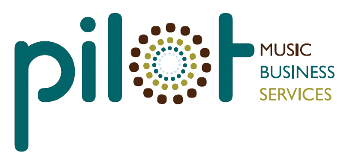What you need to know about the process of music licensing
Music Licensing of popular songs can be a quagmire at best. There are so many exceptions and pitfalls, even if you are working with an experienced licensing administrator, it helps to know the basic guidelines to get you started.
When to License
If you are using music you do not own, synchronizing music with film, audio, or in a secondary use of any kind, you must clear the composition or, if using an original recording, such as a CD, you must also clear the master recording. If you are rerecording an original composition, you will clear the composition only and not an album recording.
In the Composition clearance, the parties you are contacting are the owners of the words and music. Typically, this is a publisher, the artist directly or, the artist’s representative. The composition contains a 100% portion. There may be multiple publishing entities which comprise 100% of the copyright. The master recording is another 100% portion.
Copyright Research
There is no one entity for copyright research. Research takes time. An experienced firm will have tools in place to getting this part of the job done efficiently and accurately.
Start your clearance as early as you possible can. Try to give several weeks. We clear a lot of TV and these clearances can happen in days but this is not easy to accomplish.
All required licensing steps, copyright research, contacting the correct parties, negotiating, getting all parties to agree, and obtaining quotes in writing, takes time. Splits, the percentages allocated to all writers and, or producing parties, may not be have been established even though the song has already been released. We have often gone to clear a new release and help the claiming parties to “settle” their splits.
A licensor cannot license until their own agreements are in place. An artist may be new to a publisher or have a new administrator. If an administration agreement is unresolved, the publisher cannot legally license the work, and the clearances are held up. The Copyright Department does not have a listing or registration of the work. A licensor can slow a clearance significantly by informing of a territory restriction or split change after holding your request letter for days or longer. Confirm these splits as early as possible to confirm copyright and speed up response time.
Negotiations
Composing a concise letter, with all required terms, for your clearance is required and will speed up the response time. A good clearance firm will have strategies for positioning your request and establish an optimal setting for negotiation. A professional knows what terms to collect from a client up front to speed up the clearance process. To reduce back and forth with the licensors, send letters out carefully with all pertinent details the first time they go. Each type of clearance, and media has its own clearance requirements. A licensor can slow a clearance significantly by informing of a territory restriction or split change after holding your request letter for days or longer. Confirm
these splits as early as possible to confirm copyright and speed up response time.
Finding the correct person to receive your request within each of the licensors is essential. There are various departments in all large companies. A good licensing firm has the relationships in place and gets to the decision makers quickly.
Know your budget. Every licensor quotes differently. There are no price lists for Synchronization Licensing. Not all licensors will grant you your desired budget but you want to have a starting point. A good administrator will know what a clearance can cost.
License Execution:
Once you have received a quote and you have each 100% portion completed, you will request a license. Each license must be carefully proof to assure that the required terms match with your original negotiated terms prior to signature and counter signature.
This whole process can take several weeks to months. Licensing is not immediate and licensors are not required to grant a license. Requests can be denied. We highly recommend requesting more than one title for each use. Have a backup, an alternative piece in mind. Having alternative selections will give you options. You do not want to be tied into one title or use a song in case the licensor is unreasonable. Let alone it is against the law to use the copyright prior to permission.
If you have any questions on the process, please give us a call for a free consultation. Pilot Music Business Services is available to give estimates and consult or complete your next clearance job. Give us a call @ (203) 618-1938.
